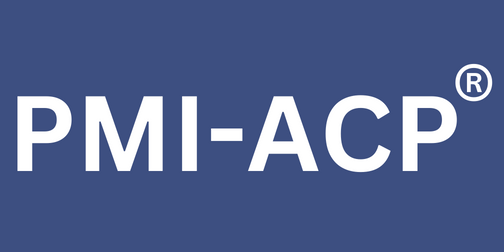
5 Reasons for Six Sigma Experts to earn PMP Certification
Posted On December 30, 2023 - 14:16 PM
Professionals with the proper skill set and qualifications are highly sought in today's cutthroat corporate environment. While Project Management Professionals (PMP) thoroughly understand project management ideas and practises, Six Sigma professionals are noted for their proficiency in process improvement and quality management. Despite the apparent differences between these two fields of study, several strong arguments favour Six Sigma practitioners becoming certified as PMPs. This post will highlight the five benefits of combining Six Sigma and PMP certifications to improve career prospects and provide new opportunities.
What is Six Sigma?
A "Six Sigma certification" professional credential shows knowledge and proficiency in the Six Sigma technique, a systematic approach to process improvement and quality management. Six Sigma attempts to improve overall operational efficiency in organisations by minimising defects, reducing process variances, and doing so.
Six Sigma certificates come in many tiers, each indicating a distinct degree of competence. The most prevalent levels of certification are:
1. Yellow Belt: This entry-level certification offers a fundamental comprehension of Six Sigma ideas, instruments, and methods. In Six Sigma initiatives, Yellow Belt specialists frequently play supporting or team responsibilities.
2. Green Belt: Green Belt certification denotes excellent proficiency for those actively participating in Six Sigma projects. Green Belts assists in process improvement initiatives inside their organisations while working under the direction of Black Belts.
3. Black Belt: The Black Belt certification denotes a high proficiency level in Six Sigma methodology. Black Belts are project managers who spearhead efforts to improve processes, analyse data and implement solutions to produce meaningful business results.
4. Black Belt Master: The Master Black Belt credential represents the pinnacle of Six Sigma proficiency. Experienced experts are Master Black Belts, who guide, mentor, and instruct Green Belts and Black Belts. They are in charge of advancing Six Sigma initiatives at the organisational level and seeing that projects for process improvement are carried out successfully.
Typically, reputable companies or providers conducting thorough training programmes and examinations would grant Six Sigma certificates. These credentials attest to a person's knowledge of Six Sigma concepts, instruments, statistical analysis methods, and proficiency in their practical application.
Although Six Sigma certificates show mastery of process improvement approaches, it's essential to remember that they do not cover all facets of project management. A more comprehensive understanding of project management principles and practices makes gaining a Project Management Professional (PMP) certification a valuable addition to a Six Sigma certification in this situation.
What is PMP?
The Project Management Institute (PMI) grants the PMP (Project Management Professional) certification, a widely respected credential. The PMP certification validates a professional's knowledge, abilities, and experience in successfully leading and managing projects. It denotes a person's proficiency and understanding of project management approaches, practises, and principles.
Candidates must fulfil particular requirements established by PMI to become certified as a PMP, most commonly a mix of education and project management experience. Candidates typically need a four-year degree (or its equivalent), at least three years of project management experience, and 4,500 hours of project leading and directing. Alternately, applicants with a high school certificate or an associate's degree need five years of project management experience and seven thousand hours of project leading and directing. Depending on the candidate's educational background, the criteria could change.
The understanding of project management ideas, procedures, tools, and strategies is evaluated in the PMP certification test. Project initiation, planning, execution, monitoring and controlling, and project closing are just a few subjects covered in the exam. Further topics include stakeholder, risk, quality, and communication management.
Five reasons why PMP certification is important for Six Sigma professionals
Project management and Six Sigma's confluence is a potent combination that enables people to succeed in their careers. Lean Six Sigma and project management improve each discipline's capacity to deliver results, streamline processes, and add value to organisations. Six Sigma experts can improve their project management abilities, increase their career options, and develop well-rounded professional improvement initiatives while effectively managing projects by receiving their PMP certification. Combining Six Sigma and project management qualifications is a potent recipe for professional success in today's fast-paced corporate climate.
1. Holistic Project Management Approach: While PMP certificates emphasise project management concepts, Six Sigma approaches emphasise organisational process improvement. Six Sigma experts can establish a comprehensive project management approach, comprehend critical components, and successfully manage cross-functional teams by earning their PMP certification. Professionals may optimise project outcomes while ensuring quality standards and process efficiencies thanks to the combination of Six Sigma and project management principles.
2. Greater Employability: Due to the fierce competition in the job market, companies are constantly looking for experts with various skill sets. Applicants' employability significantly increases if they hold both PMP and Six Sigma certifications. Professionals who can spearhead efforts to enhance processes while successfully managing projects from inception to conclusion are highly valued by organisations. One positions themselves as a highly adaptable and skilled professional by demonstrating competency in Six Sigma and project management, attracting employers from various industries.
3. Increased employment possibilities: Professionals' employment options increase when they combine their Six Sigma and PMP certifications. Almost every industry has project management positions essential for successfully carrying out significant initiatives. Six Sigma experts can move into project management positions and assume organisational leadership by earning their PMP certification. This change gives professionals better career flexibility and advancement opportunities by opening doors to various projects, industries, and sectors.
4. Better Stakeholder Management: Effective stakeholder management is essential to the success of any project. The PMP certification strongly emphasises the value of relationship building, stakeholder engagement, and effective communication. These abilities are crucial for Six Sigma experts working on process improvement initiatives since they frequently must deal with stakeholders from many departments and organisational levels. With the right tools and methods, Six Sigma experts can manage stakeholder expectations, settle disputes, and secure project buy-in, resulting in more effective project implementations.
5. Lean Six Sigma and Project Management Integration: To promote operational excellence and ongoing development, many organisations are implementing Lean Six Sigma approaches. Lean Six Sigma blends Six Sigma's data-driven approach to quality improvement with Lean concepts, emphasising waste reduction and efficiency. Professionals may optimise project processes, reduce waste, and execute projects on schedule and within budget while achieving the intended quality outcomes by integrating Lean Six Sigma with project management. Six Sigma experts can thoroughly understand project management techniques that can be incorporated with Lean Six Sigma methodology by earning a PMP certification.
Conclusion
Finally, Six Sigma professionals may significantly raise their value by utilising their skills in process improvement, data-driven decision-making, project management, effective communication, and continuous learning. Their capacity to spot inefficiencies, decrease errors, and improve operational performance offers organisations real advantages, including cost savings, higher customer satisfaction, and better profitability.
Six Sigma experts can make wise decisions, give precise answers, and spearhead projects for continuous improvement because of their excellent analytical and problem-solving abilities. They can successfully lead cross-functional teams and provide results within predetermined parameters thanks to their project management skills.
Their capacity for teamwork and effective communication enables them to involve stakeholders and promote a culture of continual improvement. In addition, their dedication to lifelong learning and professional development guarantees they keep current with market trends, making them invaluable assets in any business or area. Six Sigma professionals may significantly boost their value by using their knowledge and abilities to promote organisational success and support a continuous improvement culture.


















